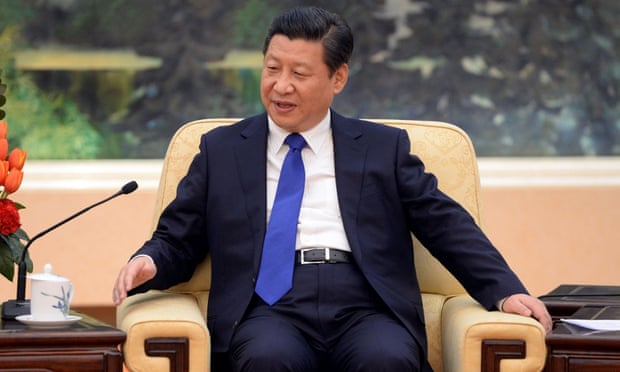
China blocks foreign news sites that revealed elite's offshore holdings
The blocking of foreign news sites that revealed details of offshore holdings by the relatives of senior leaders has continued in China as reports emerged of a propaganda directive ordering websites and services to target users posting on the subject.
Details of the order were published by China Digital Times, a website that monitors censorship instructions.
“Immediately find and remove the foreign media report “China’s Secret Offshore Tax Havens” and related content. Interactive platforms must strictly check [users]. Related images and accusatory comments about leaders and the system [of government] must be deleted without exception,” said the instructions,according to CDT.
“Block the [user] IDs of those who have an evil influence and coordinate on-the-ground investigations with the relevant departments.”
Such directives are often delivered verbally and are extremely sensitive. The Guardian has not verified the order independently.
The website Greatfire.org, which monitors which overseas sites are censored by China, reported that the Guardian, the International Consortium of Investigative Journalists (ICIJ) and six more sites that worked on the project were partly or completely blocked. The sites began to experience access problems around the time they published the reports.
The New York Times and Bloomberg websites have been blocked in China since 2012, when they carried reports on the wealth of leaders’ families.
Reports of the directive emerged as ICIJ, which has co-ordinated the two-year investigation into offshore secrecy, prepared to publish the details of more than 37,000 offshore companies and trusts with ties to China, Hong Kong and Taiwan. The details had previously been withheld from the ICIJ register, to allow reporters at organisations including the Guardian to research Chinese offshore ties. The database now discloses previously secret details of the owners of more than 100,000 offshore entities.
The ICIJ said the publication of the details, which it hopes will inspire further investigations and research, was in the interests of bringing accountability to the notoriously impenetrable offshore world.
“Secrecy creates an environment where fraud, tax evasion, money laundering and other forms of corruption thrive. The Offshore Leaks Database helps remove this secrecy,” said the ICIJ director, Gerard Ryle. “Opening up the records serves the public interest by bringing accountability to an industry that has long operated in the shadows.”
On Wednesday, a spokesman for Beijing’s foreign ministry suggested readerswould suspect the intentions behind “unconvincing” reports on the offshore assets.
Some guarded references to the story could still be seen on the Sina Weibo microblog on Thursday, but many more comments and links had been deleted and the Free Weibo site, which allows people to search censored posts, said “ICIJ” had been blocked as a keyword.
Some users appeared to have deleted related posts themselves. Recent months have seen an intensification of China’s controls on the internet, including the targeting of opinion formers and the announcement of a judicial interpretationallowing internet users to be tried for defamation if untrue posts online are visited by 5,000 internet users or reposted more than 500 times. The authorities have said the measure is necessary to prevent online rumours hurting individuals and damaging society.
Zhang Lifan, an independent scholar, told the Associated Press that the use of offshore holdings by those with ties to officials gave a strong impression of privilege and impunity.
Wen Yunchao, a well-known internet activist who now lives outside the mainland, said that while ordinary people might not fully understand the story, it was "a major blow to the prestige of the authorities", pointing to the contrast with Xi's recent visit to a budget restaurant where he mingled with ordinary citizens.
The use of offshore structures can facilitate the avoidance of tax or the moving of money overseas. However, offshore companies can also be an important tool for legitimate Chinese businesses, especially when operating overseas, due to restrictions and legislation in the country.
No comments:
Post a Comment
Comments always welcome!